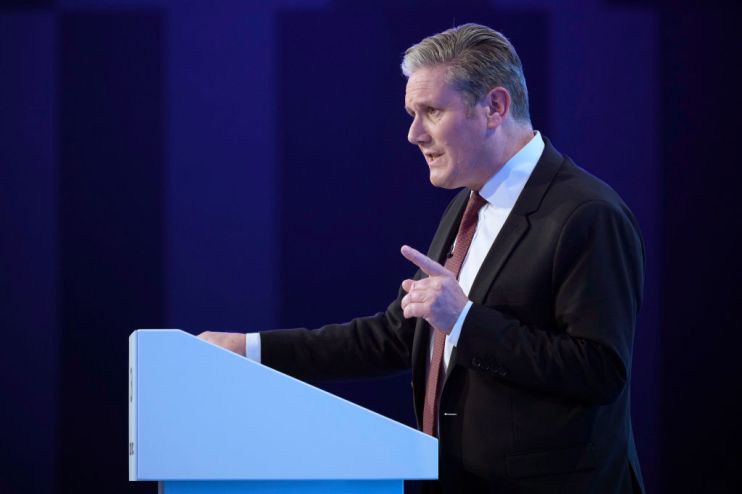Starmer: Labour has no interest in a Swiss-style Brexit deal

A future Labour government would not pursue a “Swiss-style” Brexit arrangement to bring the UK closer to the EU, Sir Keir Starmer has said.
The opposition leader, writing in City A.M., said a new Brexit deal to increase regulatory alignment with Brussels will “not be the fix some imagine”.
The government has been forced this week to slap away suggestions it wants to remove UK-EU trade barriers by copying Switzerland’s deal with the EU.
It comes after the UK’s budgetary watchdog last week said Britain’s value of trade will be 15 per cent smaller in the long-term due to Brexit.
Switzerland is deeply integrated into the EU’s single market, which gives them frictionless trade and open borders with EU nations, which means they have to accept Brussels-imposed regulations.
Starmer, a once ardent supporter of a second Brexit referendum, said following the Swiss path would “lead to years more wrangling, years more uncertainty”.
“What we need is to fix the gaps in the government’s Brexit deal – and then make Brexit work,” he wrote.
Starmer has instead been calling for the UK to take advantage of its Brexit opportunities by slashing EU financial services regulations and by brokering a deal on the Northern Ireland Protocol to reduce checks on goods crossing the Irish Sea.
He also made a clear statement on immigration today, telling the Confederation of British Industry’s (CBI) annual conference that the UK can “no longer rely on “low pay and cheap labour”.
He said the previous model of unfettered European immigration will not solve the UK’s structural economic problems of low productivity and low growth.
“Our common goal must be to help the British economy off its immigration dependency. To start investing more in training up workers who are already here,” he said.
This is in stark contrast to calls for the UK to rejoin the EU single market from London mayor Sadiq Khan.
Khan last month said “the easiest way, the quickest way to get growth is to join the single market” as he called for EU citizens to be allowed uncapped entry into the UK.
Several Labour backbenchers, including Walthamstow MP Stella Creasy, have this year also called for a return of freedom of movement with the EU.
There are no tariffs on goods between the UK and EU, however British businesses now face extensive paperwork and red tape when trading with the bloc.
This has led to the UK’s value of trade declining at a faster rate than with non-EU countries.
The Office for Budget Responsibility (OBR) has estimated that UK GDP will be 4 per cent smaller in the medium-term due to Brexit, while the OECD today forecast that Britain’s economy will grow at the slowest rate of any G7 country next year.
CBI chief Tony Danker yesterday said that “the only thing holding” our GDP growth up “is higher hours worked, due to higher immigration”.
“People are arguing against immigration but it’s the only thing that’s increased the potential growth of our economy since March,” he said.
“Remember that GDP is a simple multiplier of two things – people and their productivity. And it’s time to be honest: we don’t have the people we need nor do we have the productivity.”